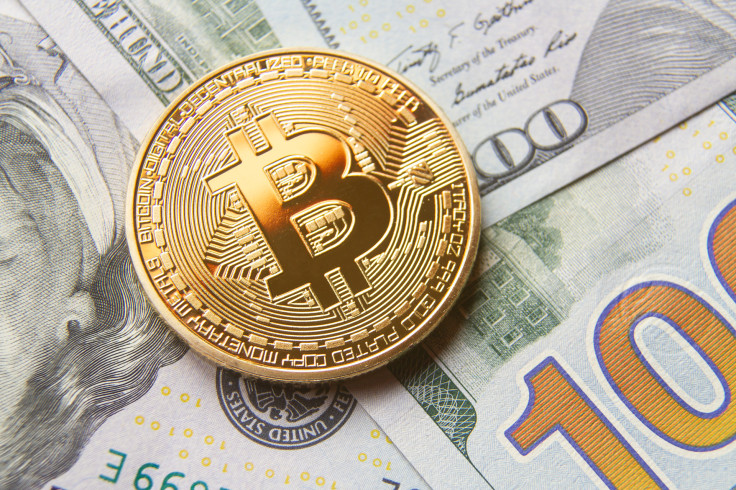
The use of Bitcoin will be allowed for the execution of contracts in Argentina, minister of Foreign Affairs Diana Mondino announced on her social media channels on Thursday. This means that, as part of the broader economic deregulation pursued by President Javier Milei's, contracts can be agreed on any mean of payment in the country, including cryptocurrencies such as Bitcoin.
The "free competition of currencies" was one of the slogans advocated by Milei's party, 'La Libertad Avanza.' However, while crypto enthusiasts were optimistic about Bitcoin's acceptance, the administration hadn't explicitly confirmed its intention until now.
The Milei administration intends to implement the change through a decree announced by the Argentinian government on Wednesday night and published on Thursday in the Official Gazette. When it comes to contract, it seeks to modify the Civil and Commercial Code to open the door to this type of exchange.
The primary goals of this modification are to "strengthen the principle of contractual freedom between the parties" and "ensure that obligations contracted in foreign currency must be settled in the agreed currency."

Mondino's announcement on X clarified that the scope extends beyond the use of dollars. "We ratify and confirm that contracts can be made in Bitcoin in Argentina," said the official on her X account, formerly Twitter, receiving over 3 million likes in less than a day.
Taking it a step further, she asserted that the revised Article 766 applies not only to Bitcoin but also to "any other cryptocurrency and/or commodity such as kilograms of beef or liters of milk."
Ratificamos y confirmamos que en Argentina se podrán pactar contratos en Bitcoin.
— Diana Mondino (@DianaMondino) December 21, 2023
Mondino explained what the revised text of Article 766 would look like: "Obligation of the debtor. The debtor must deliver the corresponding amount of the designated currency, whether the currency is legal tender in the Republic or not."
The government has not indicated whether it will limit the use of cryptocurrencies to specific types of contracts, as recently happened in Colombia. In November, Colombian president Gustavo Petro announced that Bitcoin and cryptocurrencies could be allowed in the popular economy through worker cooperatives.
Experts' Views on The Announcement

Argentina fintech and crypto specialist Hanna Schiuma, CEO and co-Founder of Lend2B, explained to The Latin Times that it is likely that this regulation will result in Argentina seeing contracts in stablecoins, such as Tether, among others.
"Those who wish to negotiate rental agreements or contracts commonly used with hard currency, such as, in the case of Argentina, U.S. dollars, would have the option to use another currency like crypto," she said.
Argentine economist and finance expert Hernán Corral, CPO & Co-Founder of Pomelo, described what the usage of stablecoins would look like as well: "For certain types of contracts, especially those settled in Stablecoins, I find it very convenient, and I don't see any inconveniences to this."
He continued: "These are agreements between parties who are free to determine the terms, and if there's an exchange currency they prefer, even other things, as clarified in Mondino's post, I think it aligns with making things more agile, allowing each party to tailor the type of payment to their needs."
According to Schiuma, another salient aspect of this announcement involves the payment of salaries, which is currently allowed up to a certain percentage in dollars. She said this could open the door to including crypto.
"It remains to be seen if it will move in that direction, but I understand it's a positive step. It's not a step in terms of regulation just yet; there's still a long way to go for that. However, it is a signal that, as they believe in exchange freedom and a free market, and the circulation of currencies, it's good news for cryptocurrencies," she added.
In contrast, Argentine Eva Sacco, Director of the Regional Integration and Development Financing Program (IRFS) at the SES Foundation, clarified, "In economic terms, regarding Bitcoin, as well as any other asset or currency, contracts between private parties have always been possible when there is mutual agreement. This is nothing new; many people have had contracts in US dollars or bitcoins for a long time."
Sacco emphasized the difference with the Argentinian peso, the legal tender currency in the country, stating that its use is mandatory. In other words, she explained, "If you have a debt with someone and that person wants to settle it in pesos, you have to accept it. For instance, if I make a contract in bitcoins with you, and you don't pay me in bitcoins but instead pay in pesos at the exchange rate, I have to accept it. If I refuse, you can make a judicial deposit, and that settles it."
Despite the buzz, it is worth mentioning that the decree has been met with criticism by certain sectors of the Argentine political scene, who questioned the decision of not putting the initiatives through Congress, and could be rejected.
Argentina's Federal Reserves: Is Bitcoin an Alternative?

Argentina's announcement could also be seen as a nod to the future for another of the historical demands of Bitcoin advocates in Argentina: using the cryptocurrency to safeguard the value of federal reserves.
This initiative, who some have criticized due to the asset's volatility, has been pioneered by the government of Nayib Bukele in El Salvador. With the price of Bitcoin on the rise, surpassing the $44,000 mark in recent weeks after what is commonly referred to as the crypto winter, the Salvadoran government has defended this decision. Bitcoin's price was over $43,500 on Friday at noon.
Milei, who has referred to the national currency, the Argentine peso, as "excrement" and has promised to close the central bank to adopt the US dollar as the official currency, has not suggested that he may go down this path.
According to a recent study by Grayscale in a country where the population is highly distrustful of the local currency due to the country's history with inflation, "Bitcoin serves as a decentralized and inflation-resistant store of value that transcends national monetary policies."
In a recent interview with The Latin Times, Argentine Santiago Siri, one of the country's early crypto advocates, praised the potential of Bitcoin for "economic emancipation and strengthening the country's finances," amid Argentina's currency woes and the country grappling with an annual inflation rate of 142%.
"My advice has always been to allocate 1% of reserves to Bitcoin, not 90%, which is a sensible way to moderate the high volatility to which the asset is subject," he explained to this outlet.
© 2025 Latin Times. All rights reserved. Do not reproduce without permission.





